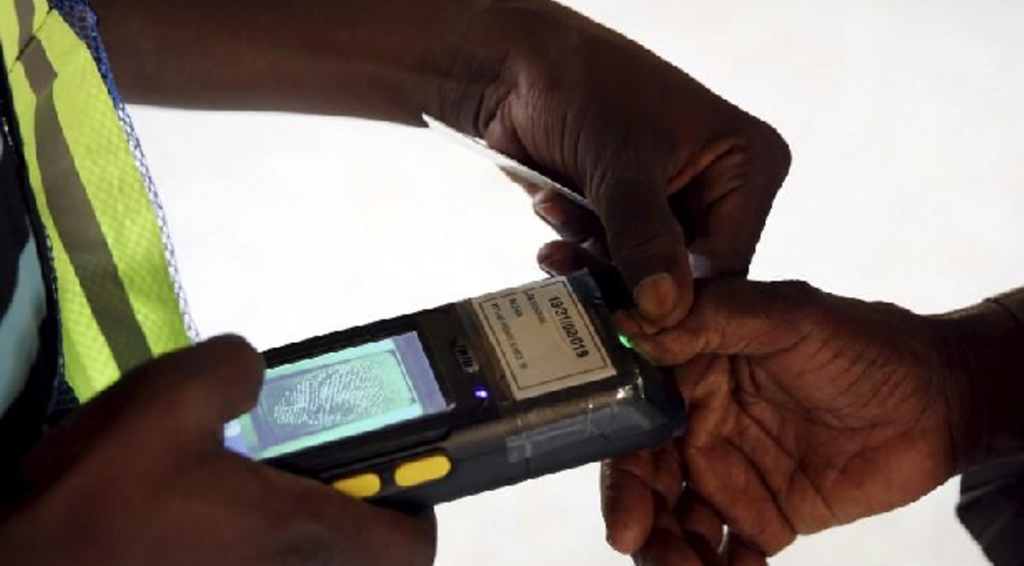

By Charles Okigbo
NIGERIAN communication scholars and professionals, at home and in the diaspora, have continued to direct their searchlight on the nature of and trends in the uses of strategic communication to influence presidential election outcomes. Although pervasive suspicion of voting fraud and rigging in our elections presents serious challenges in determining the true contributions of communication to electoral outcomes, our researchers are doubling their efforts at using mixed methods research approaches that involve multiple communication platforms.
Among the recent research on presidential elections of the Fourth Republic are Dr. Sam-Loco Smith’s study, published as a book; Mr. Ayo Oluwatosin’s assessment of election advertising strategies and tactics; the ambitious study by the Association of Communication Scholars and Professional of Nigeria, ACSPN; and the ongoing mixed-methods research being undertaken by the tripartite partnership of C&F Porter Novelli (Nigeria), North Dakota State University (USA), and ORBICOM at the University of Quebec (Canada).
Ayo Oluwatosin, formerly MD/CEO of the Rosabel Group, laid the foundation and energised interest by scholars and professionals in his groundbreaking assessment of the strategies and tactics employed by the PDP and APC in the 2015 presidential election. He found that while the PDP used documentaries, storytelling, and evident negative advertising, APC tended to use more regular 60-second spots and focused largely on social issues, people’s needs, and the change motif. Both parties tried to outdo the other in their uses of propaganda and hyperbole.
In a follow-up study which is more comprehensive and ambitious, Professor Rotimi Williams Olatunji, leading the ACSPN team that included Professors Nosa Owens-Ibie, the Vice Chancellor of Caleb University, Imota-Lagos, and Victor Ayedun-Aluma of the University of Jos, examined various aspects of the 2015 election communication. These included audience perceptions, news and advertising contents of newspapers, radio, and television, as well as social media messages, and the uses of outdoor hoardings in the 2015 presidential campaign. They also extended their searchlight to the involvement of foreign consultants and the activities of political interest groups.
Professors Charles Okigbo and Bala Musa (both in the US) and Mohammed Danladi Musa (in the UAE) have been building on the existing research of Dr. Sam-Loco Smith, Ayo Oluwatosin, and the ACSPN in examining emergent themes and continuing styles of expression in election campaign communication, particularly in the 2015 and 2019 iterations.
They affirm that with the next presidential election less than two years away, the searchlight ought to be focused on lessons from the past to provide guidance for better performance in the near future. The 2019 election, more than any other iteration of Nigerian campaigns, is getting the attention of lecturers and professionals who are focused on using mixed methods to understand and explain the value of different communication platforms.
[ALSO READ] Anambra Election: Nobody can fraudulently write results — PDP Nat’l Vice Chair, South East
Despite serious challenges that include disruptions caused by ASUU strikes and nonpayment of lecturers’ salaries, infrastructural deficiencies on campuses, and low or inexistent funding support from universities, many lecturers on the research teams have persevered against all odds and continue to engage seriously with data collection and analysis.
Dr. Shaibu Hussein, Sam Ejiwunmi, and Professor Abigail Ogwezzy-Ndisika all from the Department of Mass Communication at UNILAG are spearheading the investigation in the uses of print advertising, thanks to the support from the Advertising Practitioners Council of Nigeria, APCON, whose officers: Ralph Anyacho and Mrs. Susan Agbo, are engaged in researching the uses of radio and television commercials in the 2019 presidential campaign.
Dr. Martha Onyeajuwa of Pan Atlantic University and Prince Edoka of APCON lend support to this team. Whereas Dr. Erere Joy Anho of Delta State Polytechnic, Professor Bala Musa of Azusa Pacific University (USA) and Dr. Osita Aniemeka of the International Centre for Development Affairs (Abuja) are dissecting radio and television news coverage, Professor E. S. Dandaura of Nasarawa State University, Dr. Sule Ya’u of Bayero University, and Dr. Ralph Abimbola of Adekunle Ajasin University are in-charge of the public relations inquiry that is focused on the essential publicity products and processes of the campaign.
Representatives of the Outdoor Advertising Association of Nigeria, OAAN, notably Messrs. Omo Abunene, Valentine Elaigwu, Niyi Oyedeji, Kayode Adegbite, and Pastors Idowu Banji and Kunle Oloyede have been exploring the semiotic and symbolic uses of out-of-home artifacts in the campaign. Their professional input is buttressed by the intellectual contributions of Dr. Nnanna Nworisa and UNN advertising PhD scholar, Miss Kemi Abodurin. Dr. Nworisa has presented different versions of their research at various academic conferences, while still improving on their data collection and analysis using innovative research approaches.
One of the most consequential research groups is the Print Journalism Team which is lead by Dr. Jude Ogbodo of Ebonyi State University and Mrs. Stella Jibrin, the Head of Research at the Nigerian Press Council Abuja. Relying on the concepts of “media capture” and “story framing”, the team is poised to show why it appears that many Nigerian journalists are controlled by politicians and political party stalwarts during elections.
What is the outlook for professionalism in the uses of communication during the forthcoming 2023 presidential election campaign? Two renowned Nigerian communication scholars in the diaspora, Professor Bala Musa(USA) and Professor Muhammed Musa(UAE), both of whom are also leading acolytes in the ACCE and ACSPN research teams are convinced that “strategic communication, evidence-based professional practices, and more uses of mixed methods of research will be more evident in 2023 than in previous elections.”
Going by the evident enthusiasm of many Nigerian communication teachers and professionals towards empirical election research on the Fourth Republic, we can expect increasing interest by communication scholars and professionals at home and in the diaspora, in serious election research, with Campaign 2023 in view.
The post Presidential election campaign researchers look at 2015 and 2019 appeared first on Vanguard News.
0 Commentaires